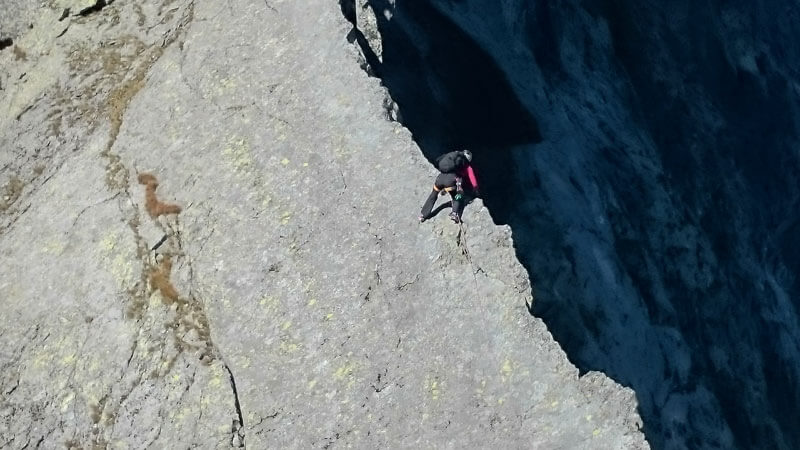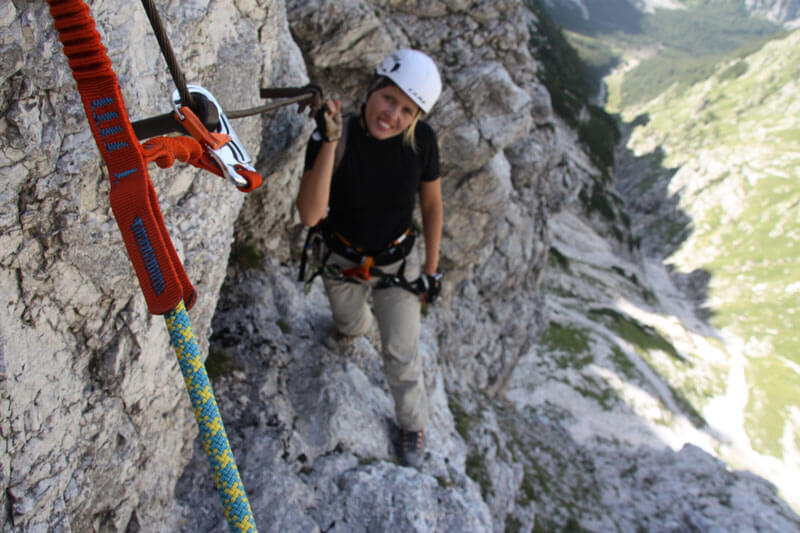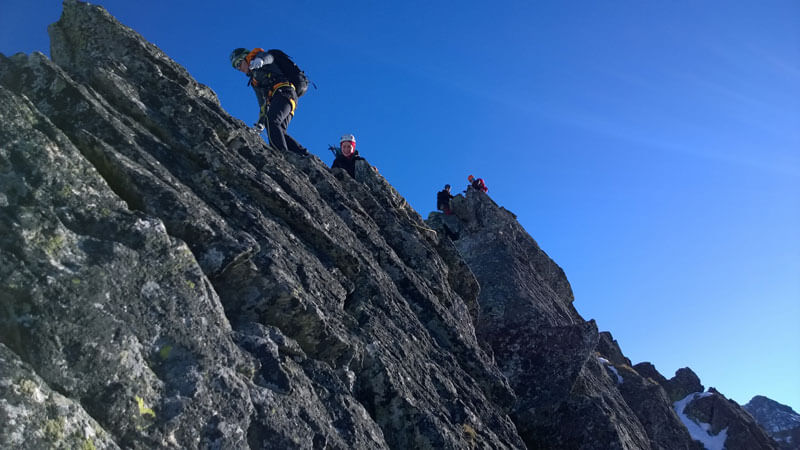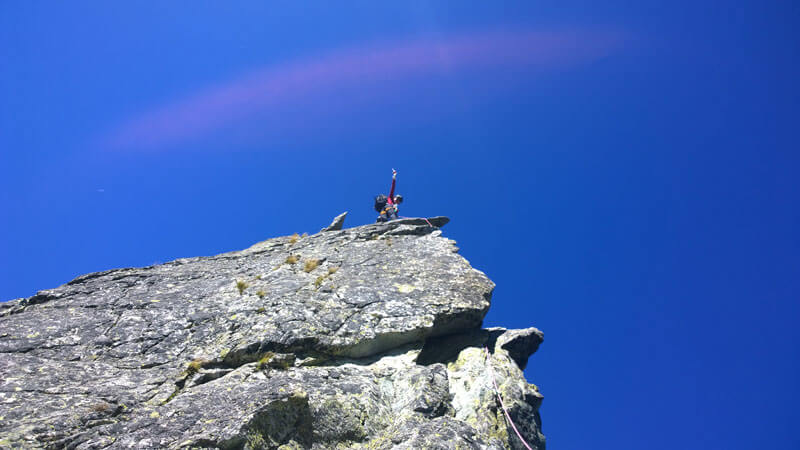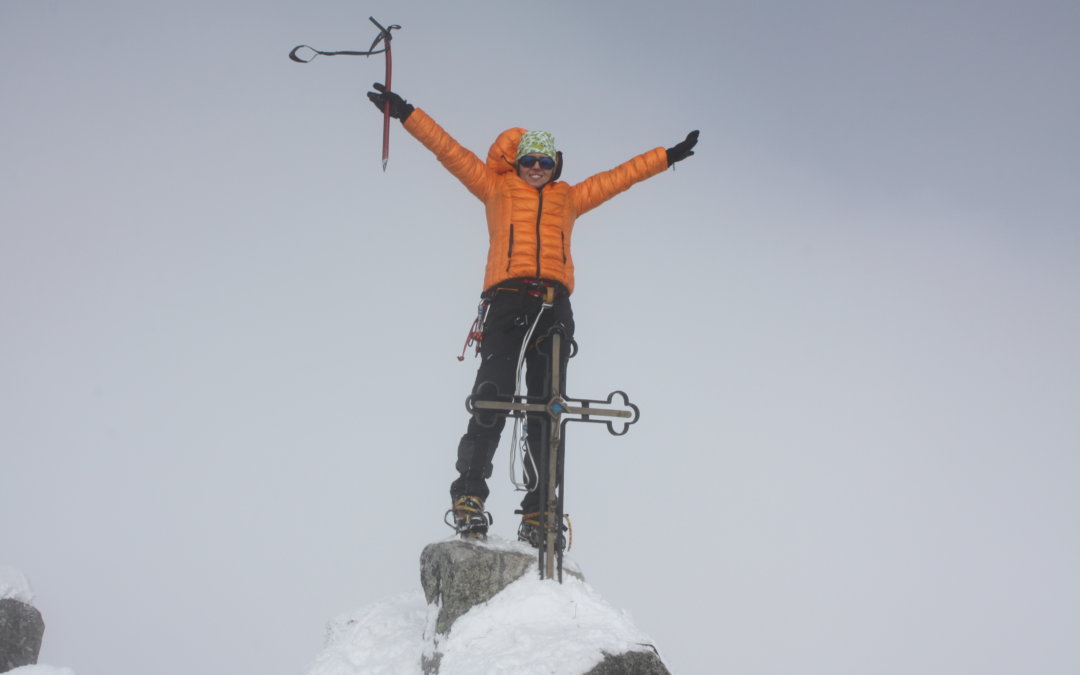Katarzyna Kacprzak is telling the HERLA brand about her passion and lover for mountains.
How did you discover your passion form climbing?
Everything started when I was 13 and I went on a camp to Biały Dunajec. Camp supervisors were passionate about the Tatra Mountains. They took us on trips that would last all day long, guided to the mountain tops, showed us the beauty of nature and immensity of the mountains. The inspired us. Not all of us, of course, but I was fascinated. I felt extremely motivated. I loved the mountains “at first sight” and I knew I want to follow this path, too. I want to explore mountains! My life took a bit different course, and for a long time I had no opportunities to indulge my passion. By the view, memories were there with me for all those years I spent in the lowlands. I was sure I would get back to my precious mountains and leave a part of me there.
Simone Moro, an Italian climber once said that: “mountain climbing is almost perfect expression of freedom (…) it is not only a sport, but also a form of escape, a quest to yourself, exploration, adventure and contemplation.” And what does mountain climbing mean to you? Have you discovered with it a different face of your feminity?
As a woman in the mountains I discover my strengths and weaknesses. The mountains teach me to accept those two seemingly excluding realities. I say seemingly excluding, as today weakness is not appreciated and the woman, as seen by the society, is either too strong or too weak. There are people who are afraid of the strength and weakness of the woman. The mountains teach me to accept the truth about myself and enjoy myself the way I am. It’s incredible that in such moments, when I’m outside the so called “comfort zone”, deep inside I discover the comfort of being my true self. It gives me great pleasure and freedom. So the mountains teach me courage, joy, freedom, living in truth and by my own rules.
Do you remember what did your first important expedition look like? When was it and what has changed in your life since then?
The first important expedition was to the highest mountain in Europe – Mount Blanc. I wasn’t prepared physically well enough and I had to turn back at the height of 3200 m. After return I started to run, train on climbing walls, climb the mountains systematically. After two years I climbed to the Roof of Europe. Now, looking at it from the perspective of time, it does not seem to be a special achievement, but then, when I was 30, the White Mountain seemed to be very remote. Since then I developed a lot in the filed of climbing and I understand my body. At the beginning of climbing there is a lot of enthusiasm, bravery inside of us and it is difficult to turn back. It is important to understand it and set some limits at good time – I go there and no further.
The initial phase of climbing is called the “romantic” period, in which emotional and aesthetic factors connected to fascination with landscape and nature play the leading role. Many mountain climbers stop at this period. It is defined as pure, spontaneous love for mountains. Climbing more and more difficult mountains is the next phase. And your passion, in what phase is it?
In my case it is constant, incessant love for mountains. I’m attracted by their beauty. I’m aware of the difficulties I may encounter in the mountains, that it’s going to be difficult, but the thought of their beauty is the strongest. About what I’m going to see, feel. I experience the mountains with all my senses, they are like home to me. I love being in the mountains. The price includes sacrifices and often uncomfortable situations – but they are worth it. A clearly defined goal I set for myself is also my motivation and strenght. And my persistence, tenacity and determination help me reach it. A man, so the people I go with, takes second position. The mountains unmask people. I see a given person the way he or she is, their noble features and weaknesses. Therefore, I go climbing with people I know and I can trust. The truth about them makes me feel safe.
When climbing, a mountain climber has to rely on him/herself and possibly on his or her companions. Have your experienced a lot of difficult situations during your expeditions?
There were some difficult situations. For example, during one trip to Pośrednia Grań I lost a phalanx in my left hand. It was dark and we couldn’t call a helicopter. In order not to lose my finger, I had to get to lower parts of the mountains as soon as possible. I also met a bear a couple of times and it may have ended bad, too. But the most difficult thing during each expedition is to ask yourself a question: where do I want to get, to what point can I take risks. It is important to listen to your body, identify symptoms it gives us and react in time – I mean altitude sickness, for example, that cannot be underestimated in any case. Of course, we have no influence on many situations, like sudden weather change or a landslide in the place we are climbing, for example. That ‘s what happened during my last expedition. We lost our companion and friend. This dramatic situation made me realise our limitations and insignificance of a man in the mountains, their power and unpredictability.
But let’s go down, now. What does your everyday look like? What do you always have time for?
For my family – I spend every spare moment with my closest family, with people who are most important for me. The family offers me support in difficult moments, understands my ambitions and intentions. Thanks to it I am, who I am. Apart from that – training. I go to a climbing wall, run, walk and do work-outs practically every day. I spend my day in an active way. I am also constantly supervised by a physiotherapist who prevents possible injuries, “fixes” my body and regenerates it. I also spend some time cooking. I pay a lot of attention to what I eat. I make sure my meals are healthy and well-balanced. And dream, of course. I’m quite a sleepy-head and can make sure I regenerate in a proper way.
And how do you care for your skin?
I do it in two ways. Firstly: from the inside: I east healthy food, take vitamins and minerals, drink a lot of water, have sufficient amount of sleep, I am an optimist. Secondly, from the outside: by cleaning, exfoliating, moisturising and protecting. I put a lot of effort to care for my skin during my expeditions to the mountains, where it is exposed to very unfavourable conditions like freezing air, strong wind or sunlight. I use protective creams with SPF 50, lipsticks with filter, I always wear mountaineering glasses that protect my eyes from UV light. I must admit I’m not a fan of buying too many cosmetics. I only have a few products, but I am a demanding and aware client. The most important factor I take into consideration is the composition. I check if the product has natural ingredients – it’s a basic safety criterion for me.
What can we wish you?
Happy returns home!
Therefore, we wish you happy returns home!
Thank you for the interview.
Katarzyna Kacprzak – a Polish and European mountain climber, she spends all the free time in the mountains, she climbed the Crown of the Tatra Mountains, now she is thinking of the Crown of Europe.
